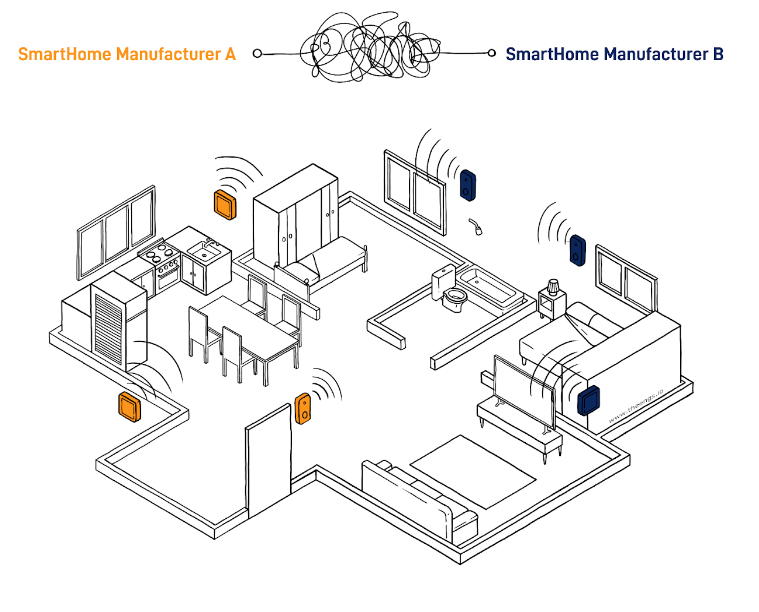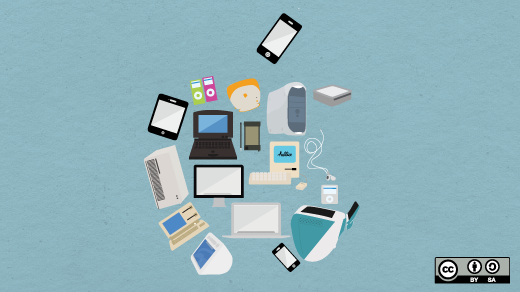Advertisers sell the myth of the "Smart Home" as a magical world where you automate everything with ease to simplify your life and free your mind of trivial tasks. It looks great on paper and TV, but so far, it's mainly been a battle of technologies and manufacturers.
Suppose you want to add a presence sensor from manufacturer A to your existing hub from manufacturer B so you can switch ON your light from manufacturer B. Or perhaps you want to switch OFF your air conditioner when your door is open, but the door sensor is not from the air conditioning manufacturer. Will it work?
There's a significant chance that the devices you want to link to one another don't talk the same "language." You might research compatibility for weeks before deciding to take your chances. It may or may not work. There are so many technologies, protocols, APIs, and cloud connectors involved that you just can't be sure until you spend a lot of money trying them. So far, the "Smart Home" has been an over-complex world in which every vendor tries to push its own technology, protocol, and stack at the cost of consumer freedom, time, effort, and expense.

(Theengs, CC BY-SA 4.0)
The Matter standard
Recently, a new standard released its first version, codenamed Matter. This could be a game-changer for smart home interoperability. Matter promises to connect devices from different brands and avoid purchasing a hub from each manufacturer. Matter brings direct local connectivity where before, integration between various manufacturers passed through a cloud or a concentrator hub.
However, there are questions:
- Can the millions of devices that are not Matter-compatible and already in homes still be used?
- Is there a way to have local interoperability without having a Matter-compatible device?
- Is it possible to make this interoperability open to encourage adoption and reduce barriers?
The answer is open source interoperability
The answer to these questions is, Yes. Recently the open source Theengs platform released an ecosystem of apps, gateways, and tools to allow Bluetooth devices from different manufacturers to be integrated into a single local ecosystem.
Theengs consists of:
- App: Presents data from different sensor manufacturers on a single interface. Apps are available for phones and tablets.
- Gateway: Pushes the data to an MQTT broker with one API to be used in your favorite open source Internet of Things or smart home software. You can install gateways (as firmware and software) on a Raspberry Pi, ESP32, Linux desktop, or Windows. You can connect the gateway to an open source controller like OpenHAB, Home Assistant, or Jeedom.
- Add-on: A Home Assistant add-on to see your BLE devices automatically.
- Decoder: Decoder translates a manufacturer's information into a standard format. The decoder is the heart of Theengs.
- Tools: A host of tools to help decode devices.
Theengs supports more than 50 devices, and the list is growing. There's an excellent chance you'll find a device that fits your use case in the list, including temperature sensors, scales, pressure, and humidity.
If you have something that's not covered by Theengs yet, feel free to join in and help develop a solution or to ask for device integration in the Theengs community.








Comments are closed.